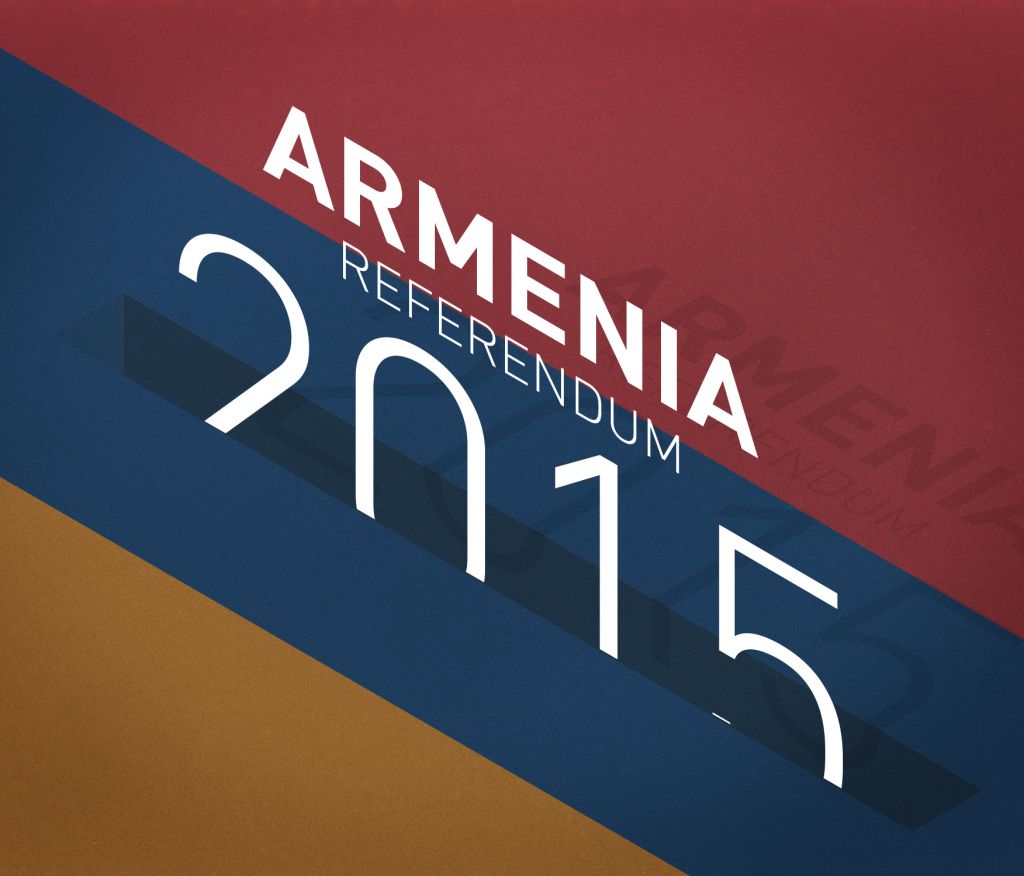Updated 11 December 2015
Many members of civil society in Armenia, in cooperation with Transparency International, worked as observers at polling stations during the referendum. Human Rights House Network has received widespread reports of threats and intimidation against them.
Lara Aharonian, Women’s Resource Center and Human Rights House Yerevan, reported: “I was an observer during the referendum. They tried to take my camera/phone away and threatened me. I called the police who came but were very slow to act. The man who was threatening me was entering in and out of the voting station, continuing to shout at me. I posted a video of him on Facebook to attract the media.”
“Finally, police took him away. In my polling station we were lucky to be two and resisting all kind of intimidation to be able to do our work. But there were great efforts to distract us. In other polling stations major frauds were registered by the observers. Some were beaten up, harassed, taken to police stations.”
Lara reflected on the referendum: “It was another fraudulent election process with the regime applying all kinds of methods to make sure that the constitution change would pass, including bribery, ballot stuffing, intimidation of observers, threats, and electricity cuts at the time of counting.”
Mamikon Hovsepyan, Pink Armenia and Human Rights House Yerevan, acted as an observer at polling station 8/27, where 60 election violations were reported by Transparency International Armenia. He said: “From early morning when we entered the polling station, the committee members appointed by the authorities were expressing degrading treatment toward us – threatening, cursing us. Time and time again I was live-streaming videos on my Twitter and Facebook accounts that people could follow. Even the president [of the committee overseeing the polling station] threatened me, that if me and my colleague did not stop reporting the fraud a group of guys would come and beat us.”
“I noticed that the president of the committee was directing people and I tried to make videos to understand whether those people were on the list or they were falsifying the list and signing instead of others. In most of the cases the president was pushing me away, closing my camera, and when they couldn’t succeed they were leaving the area and cursing me.”
“Many journalists visited our station and the US Ambassador’s visit saved us from being beaten; otherwise we could have faced serious physical violence as our colleagues in other polling stations. I was stressed to read on Twitter that my other colleagues faced serious violence and were even taken to the police station without reason just to disturb their mission that day.”
“There were a lot of unauthorized people inside the station, nobody could take them out as they came to support to organize the ballot staffing and take out “NO” votes; when I called police they didn’t react. This was stressing because we managed to monitor that station for 17 hours, and at the last moment everything failed.”
PINK Armenia has faced threats and intimidation in recent months for its work on LGBT issues in Armenia. On 19 November, HRHN called on the Armenian authorities to end their silence and inaction, and meet their obligations to protect, empower, and support human rights defenders in Armenia.
The December 6th referendum passed amendments to the Armenian constitution, making the president a largely ceremonial role while elevating the power of the prime minister.
The ruling Republican Party claims that this will strengthen democracy by creating a greater balance of powers and a stronger judiciary. However, the opposition sees this as a thinly veiled attempt to extend President Serzh Sargsyan’s rule, enabling him to seek election as the newly empowered prime minister after his final term as president ends in 2018.
Domestic and international observers and media have branded the referendum rigged and illegitimate, alleged systematic election violations and intimidation, and reported apathy from the police in dealing with threats and violence.
The Citizen Observer Initiative and European Platform for Democratic Elections (EPDE) stated: “Due to the high number of electoral violations and crimes, including intimidation of voters, falsification of protocols, and numerous reports on ballot box stuffing… the referendum results do not reflect the free will of Armenian citizens and should not be considered to be legitimate.”
The Ombudsman, by 7 December, had received 67 emergency calls regarding the referendum, alleging violations such as inaccuracies in voter lists and double voting, unlawful detention of citizens, ballot-stuffing, election bribes, and hindering of journalists, observers, and committee members.
The political consequences of the referendum and amendments will not be clear until Sargsyan’s final presidential term comes to an end in 2018. For civil society and everyday Armenians though, it has wide and immediate implications. The political elite separated themselves from the electorate, conducting a sham referendum and ignoring the political will of Armenian citizens. The authorities also escalated their intimidation and violence against civil society, and continued to encourage an environment of impunity for those that target human rights defenders.





